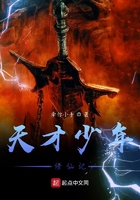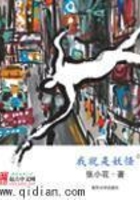Perhaps he did not know our condition, for our airmen were magnificent and you never saw a Boche plane over our line by day, though they bombed us merrily by night. If he had called our bluff we should have been done, but he put his main strength to the north and the south of us. North he pressed hard on the Third Army, but he got well hammered by the Guards north of Bapaume and he could make no headway at Arras. South he drove at the Paris railway and down the Oise valley, but there Petain's reserves had arrived, and the French made a noble stand.
Not that he didn't fight hard in the centre where we were, but he hadn't his best troops, and after we got west of the bend of the Somme he was outrunning his heavy guns. Still, it was a desperate enough business, for our flanks were all the time falling back, and we had to conform to movements we could only guess at. After all, we were on the direct route to Amiens, and it was up to us to yield slowly so as to give Haig and Petain time to get up supports. I was a miser about every yard of ground, for every yard and every minute were precious. We alone stood between the enemy and the city, and in the city was Mary.
If you ask me about our plans I can't tell you. I had a new one every hour. I got instructions from the Corps, but, as I have said, they were usually out of date before they arrived, and most of my tactics I had to invent myself. I had a plain task, and to fulfil it Ihad to use what methods the Almighty allowed me. I hardly slept, Iate little, I was on the move day and night, but I never felt so strong in my life. It seemed as if I couldn't tire, and, oddly enough, I was happy. If a man's whole being is focused on one aim, he has no time to worry ... I remember we were all very gentle and soft-spoken those days. Lefroy, whose tongue was famous for its edge, now cooed like a dove. The troops were on their uppers, but as steady as rocks. We were against the end of the world, and that stiffens a man ...
Day after day saw the same performance. I held my wavering front with an outpost line which delayed each new attack till Icould take its bearings. I had special companies for counter-attack at selected points, when I wanted time to retire the rest of the division. I think we must have fought more than a dozen of such little battles. We lost men all the time, but the enemy made no big scoop, though he was always on the edge of one. Looking back, it seems like a succession of miracles. Often I was in one end of a village when the Boche was in the other. Our batteries were always on the move, and the work of the gunners was past praising.
Sometimes we faced east, sometimes north, and once at a most critical moment due south, for our front waved and blew like a flag at a masthead ... Thank God, the enemy was getting away from his big engine, and his ordinary troops were fagged and poor in quality. It was when his fresh shock battalions came on that I held my breath ... He had a heathenish amount of machine-guns and he used them beautifully. Oh, I take my hat off to the Boche performance.
He was doing what we had tried to do at the Somme and the Aisne and Arras and Ypres, and he was more or less succeeding.
And the reason was that he was going bald-headed for victory.
The men, as I have said, were wonderfully steady and patient under the fiercest trial that soldiers can endure. I had all kinds in the division - old army, new army, Territorials - and you couldn't pick and choose between them. They fought like Trojans, and, dirty, weary, and hungry, found still some salt of humour in their sufferings. It was a proof of the rock-bottom sanity of human nature. But we had one man with us who was hardly sane. ...
In the hustle of those days I now and then caught sight of Ivery.
I had to be everywhere at all hours, and often visited that remnant of Scots Fusiliers into which the subtlest brain in Europe had been drafted. He and his keepers were never on outpost duty or in any counter-attack. They were part of the mass whose only business was to retire discreetly. This was child's play to Hamilton, who had been out since Mons; and Amos, after taking a day to get used to it, wrapped himself in his grim philosophy and rather enjoyed it.
You couldn't surprise Amos any more than a Turk. But the man with them, whom they never left - that was another matter.
'For the first wee bit,' Hamilton reported, 'we thocht he was gaun daft. Every shell that came near he jumped like a young horse. And the gas! We had to tie on his mask for him, for his hands were fushionless. There was whiles when he wadna be hindered from standin' up and talkin' to hisself, though the bullets was spittin'. He was what ye call demoralized ... Syne he got as though he didna hear or see onything. He did what we tell't him, and when we let him be he sat down and grat. He's aye greetin' ...
Queer thing, sirr, but the Gairmans canna hit him. I'm aye shakin'
bullets out o' my claes, and I've got a hole in my shoulder, and Andra took a bash on his tin that wad hae felled onybody that hadna a heid like a stot. But, sirr, the prisoner taks no scaith. Our boys are feared of him. There was an Irishman says to me that he had the evil eye, and ye can see for yerself that he's no canny.'
I saw that his skin had become like parchment and that his eyes were glassy. I don't think he recognized me.
'Does he take his meals?' I asked.
'He doesna eat muckle. But he has an unco thirst. Ye canna keep him off the men's water-bottles.'













